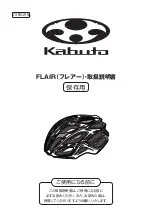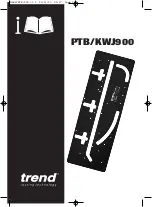
Refrigeration Maintenance
10-15
8. Evacuate the hoses to 100 microns, or the lowest achievable level below 500 microns.
9. When a vacuum of 100 microns has been reached, close the vacuum valve and stop the vacuum pump.
10. Wait 5 minutes and then check the vacuum gauge. The pressure should not exceed 1500 microns.
11. If the pressure rises above 1500 microns in 5 minutes, check all the hoses, connections and packing glands on unit service
valves for leaks. Then repeat steps 3 through 6. If the pressure rises slower this time, moisture may be present in the hoses.
Repeat steps 3 through 6 until the results are satisfactory.
NOTE: Dirty vacuum pump oil or a defective vacuum pump will prevent a low micron reading. Hoses and fittings can be
isolated individually to identify leaks.
Unit Evacuation
NOTE: This procedure refers to an evacuation carried out at an ambient temperature of approximately 15 C. The threshold
needs to be adjusted accordingly for ambients lower than this.
NOTE: Battery charger must be connected and system must be energised throughout this procedure.
NOTE: Do not attempt to evacuate the unit until the evacuation equipment has been tested and its performance has been
verified.
CAUTION: Do not attempt to evacuate a unit until you are sure the unit is leak free. A unit with less than a full refrigerant
charge should be thoroughly leak checked and all leaks must be repaired.
1. Close isolation valve at the manifold to isolate the vacuum gauge.
2. Open the compressor service valves and the receiver outlet valve.
3. Replace and tighten the valve stem caps on all three service valves. Do not remove them unit unit is charged.
4. Open the vacuum valve at the vacuum pump and start the pump.
5. Evacuate the system for 5 minutes. Then open the isolation valve at the manifold to access the vacuum gauge.
6. Evacuate the system to 500 microns or the lowest achievable level between 500 and 1000 microns.
(All units except Spectrum)Continue to evacuate for 15 minutes after a 500 to 1000 micron vacuum is achieved .
SPECTRUM AND TCI MODEL NOTE: Continue to evacuate for 1 hour after a 500 to 1000 micron vacuum has been
achieved.
NOTE: The presence of refrigerant in the compressor oil may prevent a low micron reading from being achieved. The oil can
continue to “outgas” for long periods of time. If the micron level appears to stall after 30 to 45 minutes between 1000 and
1500 microns, front seat the suction and discharge service valves and observe the micron gauge. A sharp drop in the micron
reading (1000 to 1500 microns) would indicate that refrigerant is present in the oil or a leak exists in the compressor area.
7. When the desired micron level has been achieved (500 to 1000 microns), close the vacuum valve at the vacuum pump. Turn
the vacuum pump OFF.
8. Observe the reading on the vacuum gauge for 5 minutes. The vacuum rise should not exceed 2000 microns. If the vacuum
level exceeds 2000 microns after 5 minutes, a leak is present, or additional evacuation time is required.
9. If the vacuum level is acceptable, start the pump and open the vacuum valve. Evacuate the system for 5 minutes to remove
the pressure rise.
10. Close the vacuum valve and stop the pump. Observe the vacuum gauge to confirm that the system remains in a deep vacuum.
11. Close the isolation valve at the manifold. The unit is now ready to charge.
Summary of Contents for SLXi Spectrum
Page 17: ...Safety Precautions 2 5 Warning Decals...
Page 18: ...Safety Precautions 2 6 Warning Decals Information Decals...
Page 74: ...Unit Description 5 30...
Page 128: ...Controller Operation 7 28...
Page 156: ...Electrical Maintenance 8 28...
Page 234: ...Refrigeration Maintenance 10 22...
Page 309: ...13 Mechanical Diagnosis TK 482 TK 486 and TK 486V Engines 13 2...
Page 316: ...Mechanical Diagnosis 13 8...
Page 322: ...Refrigeration System Diagnosis 14 6...
Page 332: ...Single Temperature Refrigeration System Diagrams 15 10...
Page 339: ...Multi Temperature Refrigeration System Diagrams 16 7...
Page 340: ...Multi Temperature Refrigeration System Diagrams 16 8...
















































